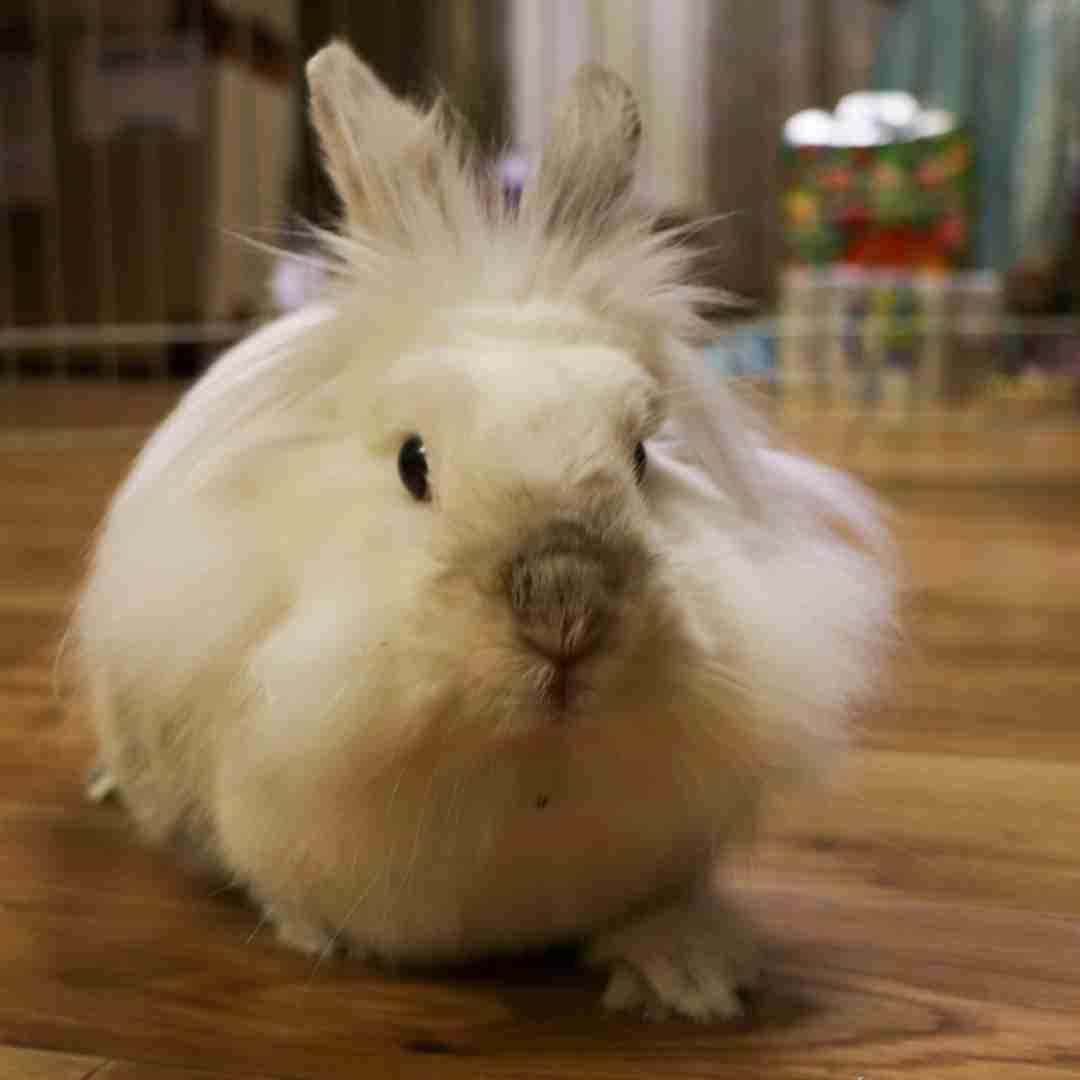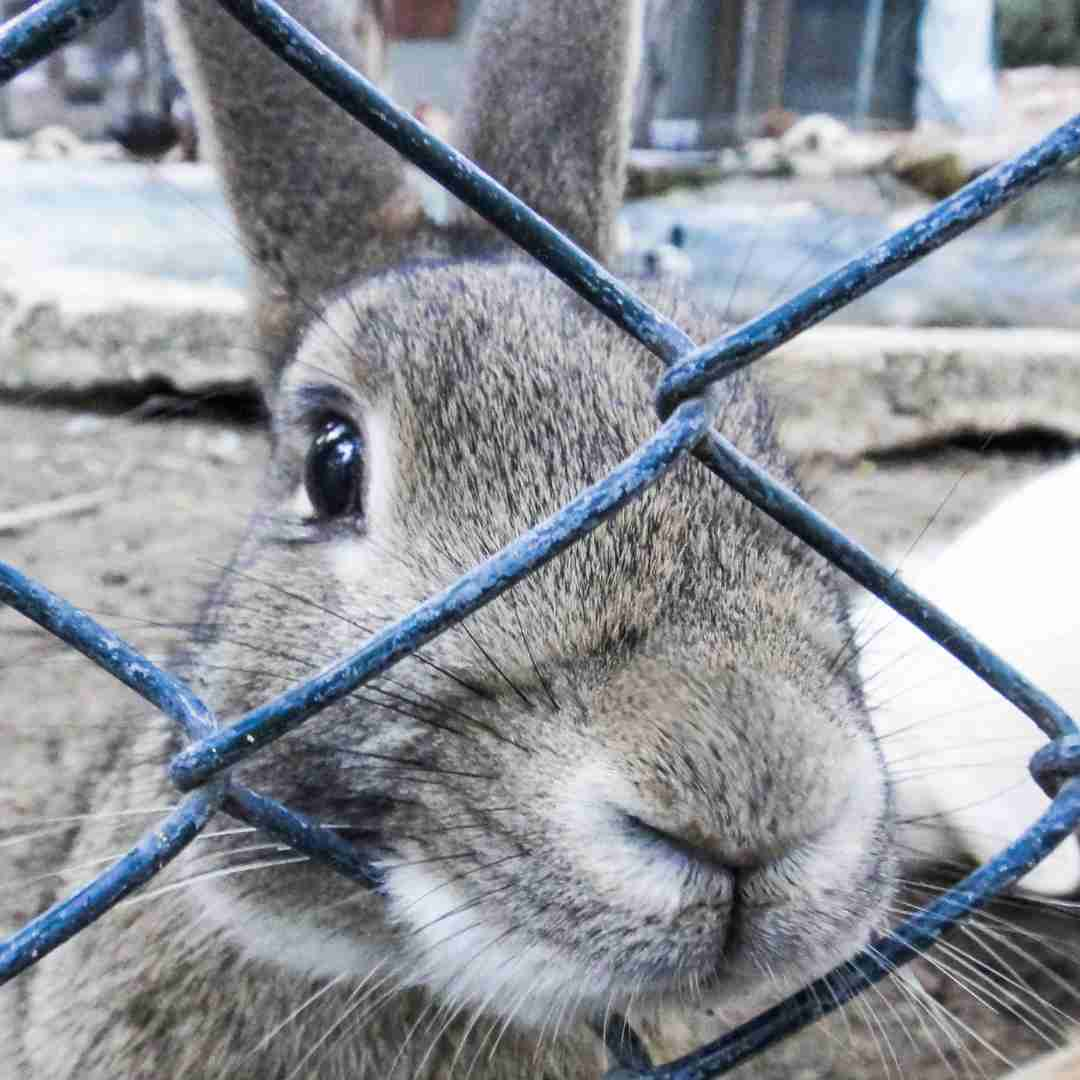Signs of Stress in Rabbits: How to Recognize When Your Rabbit is Unhappy
Rabbits are social animals that require companionship and stimulation to stay healthy and happy. Unfortunately, rabbits can become stressed due to a variety of factors, including changes in their environment, lack of exercise, and inadequate diet. It is important to recognize the signs of stress in rabbits so that you can take steps to improve their wellbeing.
One of the most common signs of stress in rabbits is changes in their behavior. If your rabbit is normally active and playful, but suddenly becomes lethargic and withdrawn, this could be a sign of stress. Other behavioral changes to look out for include excessive grooming, aggression, and hiding.
Physical signs of stress in rabbits include changes in their eating and drinking habits. If your rabbit is not eating or drinking as much as usual, this could be a sign of stress. Additionally, rabbits may become more prone to illness when they are stressed, so it is important to watch for any changes in their physical health.
Finally, rabbits may also show signs of stress through their body language. If your rabbit is hunched over, has its ears flattened against its head, or is grinding its teeth, these could all be signs of stress.
If you notice any of these signs of stress in your rabbit, it is important to take steps to reduce their stress levels. This may include providing them with more companionship, increasing their exercise, or changing their diet. Additionally, it is important to ensure that their environment is free from any potential stressors, such as loud noises or sudden changes in temperature. By recognizing the signs of stress in rabbits and taking steps to reduce their stress levels, you can help ensure that your rabbit remains happy and healthy.
How to Tell if Your Rabbit is Depressed: Common Symptoms to Look Out For
Rabbits are social animals and can become depressed if they are not given enough attention or stimulation. It is important to recognize the signs of depression in rabbits so that you can take steps to help them feel better. Here are some common symptoms to look out for if you suspect your rabbit may be depressed:
1. Loss of Appetite: A depressed rabbit may lose interest in food and stop eating. If your rabbit is not eating, it is important to take them to the vet to rule out any medical issues.
2. Lethargy: A depressed rabbit may become lethargic and sleep more than usual. They may also be less active and less interested in playing.
3. Aggression: A depressed rabbit may become aggressive and bite or scratch when handled.
4. Changes in Grooming: A depressed rabbit may stop grooming themselves and their fur may become matted or unkempt.
5. Changes in Behavior: A depressed rabbit may become withdrawn and stop interacting with people or other animals. They may also become more vocal and make loud noises.
If you notice any of these symptoms in your rabbit, it is important to take steps to help them feel better. Spend more time with them, provide them with toys and activities, and make sure they have a comfortable and safe environment. If the symptoms persist, it is best to take them to the vet for a check-up.
Understanding Your Rabbit's Behavior: What to Do When Your Rabbit is Sad
Rabbits are social animals and can become sad when they feel lonely or isolated. If your rabbit is exhibiting signs of sadness, it is important to take steps to help them feel better. Here are some tips for understanding and addressing your rabbit’s sadness:
1. Spend Time with Your Rabbit: Spend quality time with your rabbit every day. This could include petting, brushing, and playing with them. This will help your rabbit feel more connected to you and less lonely.
2. Provide Stimulation: Make sure your rabbit has plenty of toys and activities to keep them entertained. This could include chew toys, tunnels, and other interactive items.
3. Provide a Safe Environment: Make sure your rabbit’s living space is safe and secure. This includes providing a secure enclosure and making sure there are no potential hazards in the area.
4. Monitor Diet: Make sure your rabbit is getting a balanced diet. This includes fresh vegetables, hay, and a small amount of pellets.
5. Seek Veterinary Care: If your rabbit’s sadness persists, it is important to seek veterinary care. Your veterinarian can help diagnose any underlying medical issues and provide treatment if necessary.
By following these tips, you can help your rabbit feel better and enjoy a happier life.
The Impact of Environment on Rabbit Health: How to Create a Happy Home for Your Rabbit
Creating a safe and healthy environment for your rabbit is essential for their overall wellbeing. Rabbits are sensitive creatures and require a specific environment to thrive. This article will provide information on how to create a happy home for your rabbit, and the impact that environment can have on their health.
The first step in creating a happy home for your rabbit is to provide them with a safe and secure living space. This should be a large, enclosed area that is free from potential hazards such as electrical cords, sharp objects, and other animals. The enclosure should also be escape-proof, as rabbits are known to be escape artists. Additionally, the enclosure should be kept clean and free from debris, as rabbits are prone to respiratory infections.
The next step is to provide your rabbit with a comfortable living space. This should include a comfortable bedding material such as hay or straw, as well as a litter box. The litter box should be cleaned regularly to prevent the spread of disease. Additionally, the enclosure should be kept at a comfortable temperature, as rabbits are sensitive to extreme temperatures.
The third step is to provide your rabbit with a healthy diet. This should include a variety of fresh vegetables, hay, and a small amount of pellets. It is important to avoid giving your rabbit too many treats, as this can lead to obesity and other health issues. Additionally, fresh water should be available at all times.
Finally, it is important to provide your rabbit with plenty of enrichment activities. This can include providing toys, tunnels, and other items for them to explore. Additionally, it is important to provide your rabbit with regular exercise, as this can help to keep them healthy and active.
By following these steps, you can create a happy home for your rabbit and ensure that they remain healthy and happy. The environment that you provide for your rabbit can have a significant impact on their health, so it is important to take the necessary steps to ensure that they are living in a safe and comfortable environment.
The Benefits of Bonding with Your Rabbit: How to Tell if Your Rabbit is Content and Happy
Bonding with your rabbit is an important part of providing them with a happy and healthy life. Rabbits are social animals and need companionship to thrive. When you bond with your rabbit, you create a strong bond of trust and understanding between you and your pet. This bond can help your rabbit feel safe and secure, and can even help them to live longer.
When you bond with your rabbit, you will be able to tell if they are content and happy. Here are some signs that your rabbit is content and happy:
1. They are relaxed and calm. When your rabbit is content and happy, they will be relaxed and calm. They will not be easily startled or scared, and they will be comfortable in your presence.
2. They are curious and playful. When your rabbit is content and happy, they will be curious and playful. They will explore their environment and interact with you in a positive way.
3. They are vocal. When your rabbit is content and happy, they will be vocal. They may make soft noises or even purr when they are content and happy.
4. They are grooming themselves. When your rabbit is content and happy, they will groom themselves. This is a sign that they are feeling relaxed and comfortable.
5. They are eating and drinking. When your rabbit is content and happy, they will be eating and drinking regularly. This is a sign that they are feeling healthy and content.
Bonding with your rabbit is an important part of providing them with a happy and healthy life. When you bond with your rabbit, you will be able to tell if they are content and happy by looking for signs such as relaxation, curiosity, vocalization, grooming, and eating and drinking. By providing your rabbit with a safe and secure environment, you can help them to live a long and happy life.
